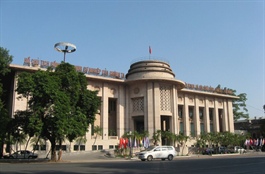Careful consideration of special consumption tax on sugary drinks urged
Careful consideration of special consumption tax on sugary drinks urged
Enterprises urge careful consideration to be given to the Ministry of Finance’s proposal to impose a special consumption tax on sugary drinks to ensure harmonisation of benefits between the State, consumers and producers.

Nguyen Quoc Viet, deputy director of the Viet Nam Institute for Economic and Policy Research, said production and business remain difficult.
To ensure macro-economic stability, it is necessary to maintain policies which energise enterprises and promote domestic consumption. Policy changes, if any, should be studied carefully to ensure benefits harmonisation.
Viet said that it was not a good time to change taxes as it might further burden enterprises and consumers, especially when efforts are being made to recover growth. He added that the adjustments might cause instability in the institutional and legal environment and have negative impacts on businesses.
The finance ministry planned to levy an excise tax on sugary, barley, and non-alcoholic beverages. The ministry said that the tax was designed to bring down sugar consumption and improve public health, adding that the heavy consumption of these drinks was causing overweight and obesity.
The ministry cited statistics that sugary drink consumption increased seven times in the last 15 years, from 6.6 litres per capita per year in 2002 to 52.09 litres in 2020.
However, Nguyen Thi Lam, former deputy director of the National Institution of Nutrition, said there was no clear link between sugary drink consumption and obesity.
She pointed out several reasons for obesity, such as a sedentary lifestyle, using foods rich in fat and protein, fast food and sugar-containing foods.
According to Chris Valoon, president of the American Chamber of Commerce in Vietnam (AmCham) Da Nang, the existing legal system of Viet Nam does not define what a sugary drink is, despite the ministry’s proposal to add sugary drinks, barley drinks and non-alcoholic beverages subject to the special consumption tax.
This would mean that a wide range of products essential for life and health, such as milk and dairy, would be subject to the tax.
The impacts of the policy change must be carefully studied, especially on enterprises and consumers.
Sharing the same viewpoint, Tran Quang Trung, president of the Viet Nam Dairy Association, said that it was not correct to consider sugar a major cause of overweight and obesity.
Besides the increasing rate of obesity in cities, the rate of stunted children in rural areas also needed to be paid attention to, he said, adding that it was necessary to have definitions for sugary drinks and classifications.
Do Thai Vuong from the Vietnam Beer – Alcohol – Beverage Association (VBA) said that the beverage industry was recovering from the COVID-19 pandemic but still faced a lot of difficulties with uncertainties from the global situation and increasing production costs.
Enterprises in the beverage industry needed stable policies in terms of taxes and fees to return to pre-pandemic growth, he said.
The imposition of an excise tax on sugary drinks would not solve the problem of obesity but create a discriminatory tax policy, which might cause undesirable consequences for other related industries such as the sugar production, retail and packaging industries.
Dinh Trong Thinh from the Academy of Finance, however, had a different perspective when saying that this tax should be levied to regulate consumption behaviour. The tax rate could be around 10 per cent, the same as in Cambodia, along with regulations on nutrition labelling, testing, monitoring and boosting communication programmes.
This was not the first time the proposal about an excise tax on sugary drinks was raised. The idea was introduced in 2014 with a tax rate of 10 per cent but did not reach an agreement.
The Ministry of Finance planned to increase the special consumption tax on beer and alcohol, saying that the consumption of alcoholic beverages was increasing rapidly.
The current tax rate on beer is 65 per cent, and for alcohol from 35 per cent to 65 per cent, depending on the alcohol content.
Vo Tri Thanh, director of the Institute for Brand and Competitiveness Strategy, said that it was not a good time to consider the imposition of the excise tax when enterprises were still in difficulty and more time was needed to study the impacts of the policy change and consulting international experiences.
A problem which might arise when the tax was imposed was that consumers would shift from using official products to smuggled products. This impact must be studied thoroughly, Thanh said.
Denmark is one country which had imposed this tax since 1930, but it lifted the tax in 2014 because the imposition did not bring the effect as expected.
























